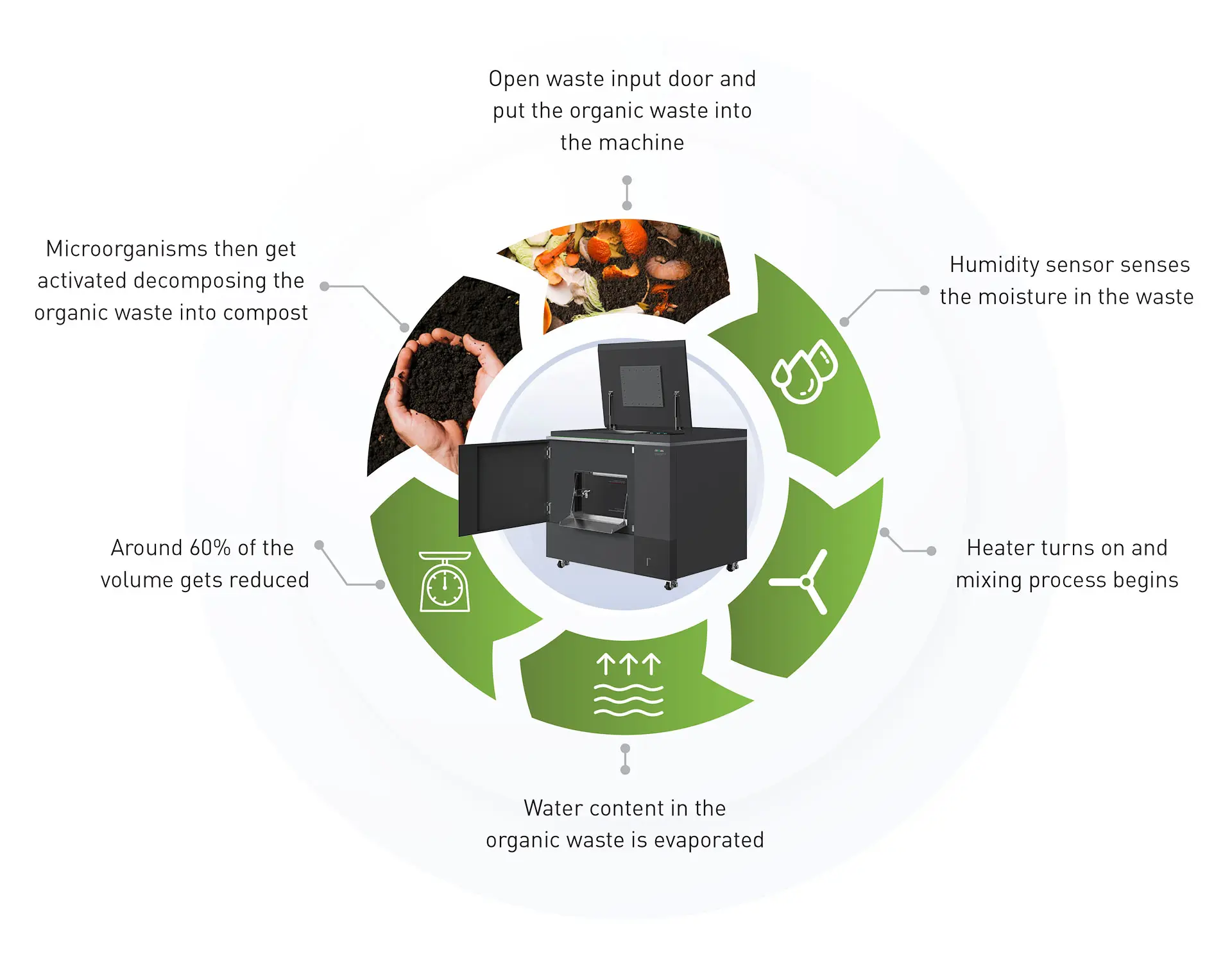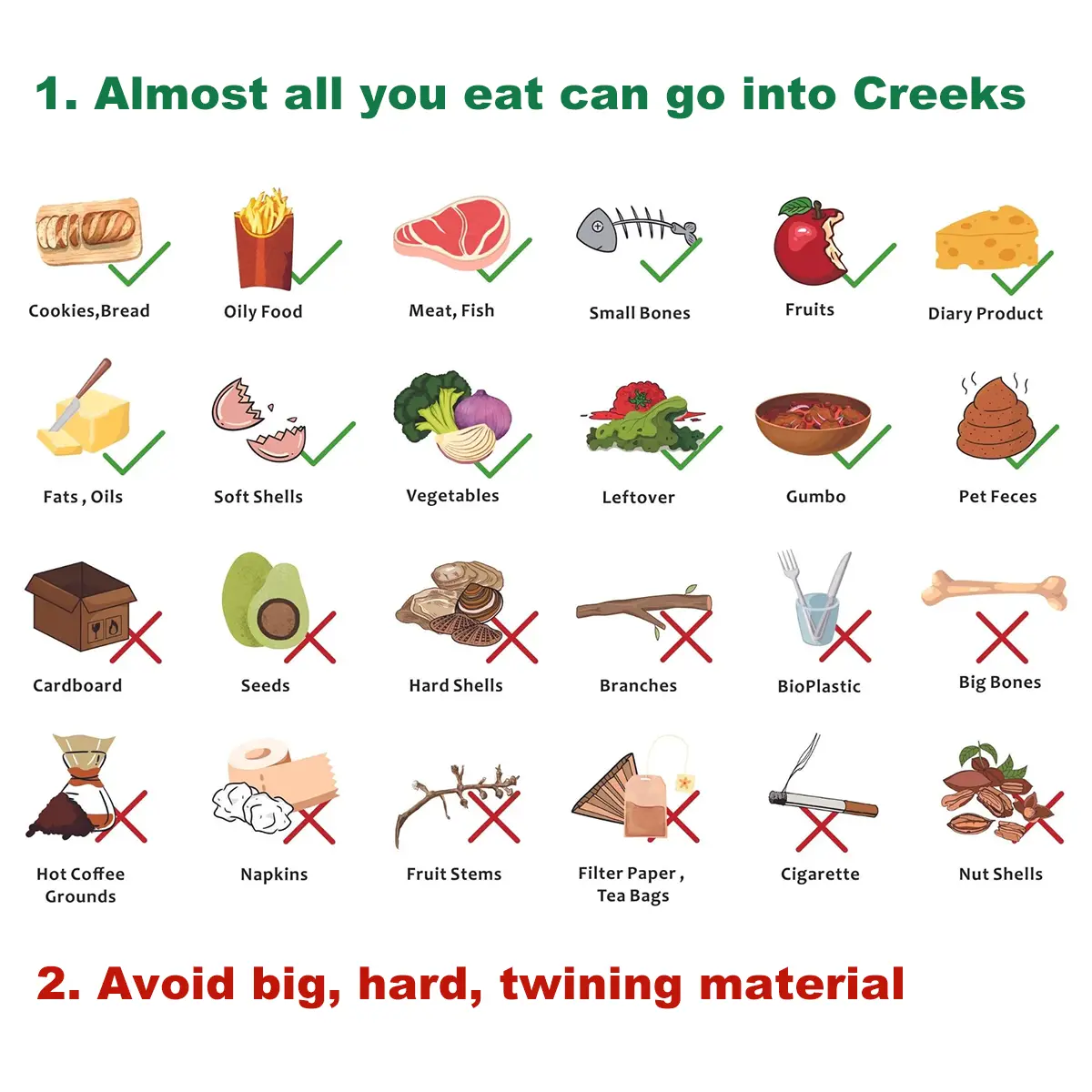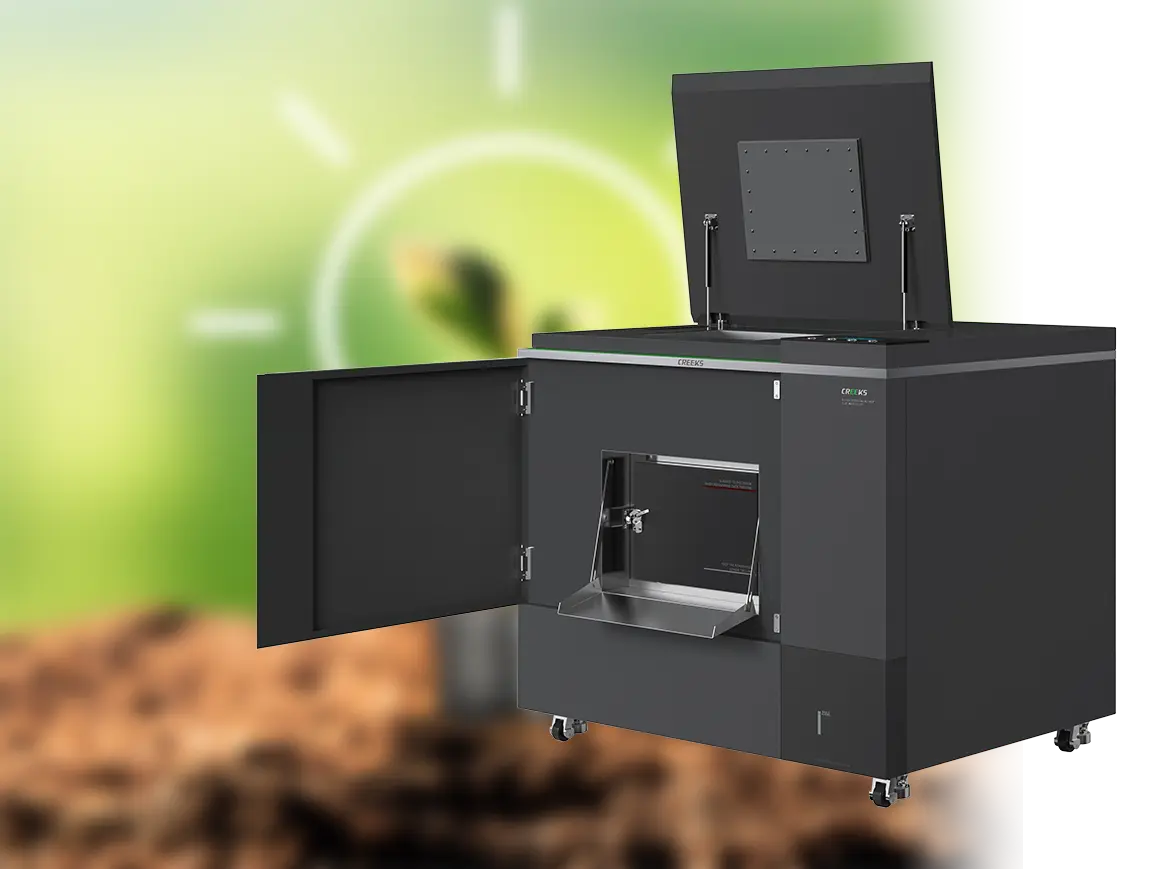How a Zero Waste Composter Reduces Landfill Waste
Introduction
Landfill waste is a growing environmental crisis, with millions of tons of organic waste decomposing anaerobically and releasing harmful greenhouse gases like methane. A zero waste composter offers a sustainable solution by diverting food scraps and biodegradable materials from landfills, transforming them into nutrient-rich compost.
1. The Problem: Landfill Waste and Its Environmental Impact
The Scale of Food Waste in Landfills
The EPA estimates that over 30% of landfill waste is organic material, including food scraps and yard waste.
In the U.S. alone, 63 million tons of food waste end up in landfills annually. When organic matter decomposes in landfills, it produces methane, a greenhouse gas 25 times more potent than CO₂.
Why Landfills Are an Inefficient Solution
Lack of oxygen in landfills leads to anaerobic decomposition, which is slower and more polluting. Leachate (toxic liquid runoff) contaminates soil and groundwater. Landfills take up vast amounts of space, contributing to habitat destruction.
A zero waste composter bypasses these issues by enabling aerobic decomposition, which is faster, cleaner, and more sustainable.
2. How a Zero Waste Composter Works?
The Science of Composting
Composting is a natural biological process where microorganisms (bacteria, fungi) break down organic matter into humus—a rich soil amendment.
Carbon-to-Nitrogen Ratio (C:N): Ideal composting requires a balance of “browns” (carbon-rich materials like leaves, paper) and “greens” (nitrogen-rich materials like food scraps).
Aerobic Decomposition: Unlike landfills, composting relies on oxygen, preventing methane production.
Temperature & Moisture: A well-maintained composter heats up (up to 140°F/60°C), killing pathogens and speeding up decomposition.
Step-by-Step: How Composting Diverts Waste from Landfills
- Collection: Food scraps, paper, and yard waste are separated from trash.
- Decomposition: Microorganisms break down waste without methane emissions.
- Conversion: Organic waste becomes nutrient-rich compost in weeks/months.
- Reuse: Compost enriches soil, reducing the need for chemical fertilizers.

3. Environmental Benefits of Zero Waste Composting
Reduction in Methane Emissions
Composting prevents methane release by avoiding anaerobic landfill conditions. If half of global food waste were composted, it could reduce emissions equivalent to removing 7.8 million cars annually (EPA).
Less Landfill Expansion Needed
Diverting organic waste extends landfill lifespans, reducing the need for new sites. Cities like San Francisco have cut landfill waste by 80% through composting programs.
Improved Soil Health & Reduced Chemical Use
Compost enhances soil structure, retains water, and reduces erosion. Farmers using compost need fewer synthetic fertilizers, lowering pollution.
4. Real-World Success Stories
Case Study: San Francisco’s Mandatory Composting Law
Since 2009, San Francisco has diverted 2.5 million tons of compostable waste from landfills. The city now boasts an 80% landfill diversion rate, the highest in the U.S.
Community Composting Programs
NYC Compost Project processes over 1 million pounds of food scraps annually. Seattle’s composting initiative has reduced food waste by 30% in a decade.
5. How to Maximize Your Zero Waste Composter’s Efficiency
What to Compost vs. What to Avoid
✅ Compostable:
- Fruit/vegetable scraps
- Coffee grounds, tea bags
- Eggshells, nutshells
- Shredded paper, cardboard
❌ Avoid:
- Meat, dairy (attracts pests)
- Oily foods (slows decomposition)
- Pet waste (pathogens)

Tips for Faster, Odor-Free Composting
- Layer greens & browns (3:1 ratio).
- Turn the pile weekly for aeration.
- Keep moisture balanced (like a damp sponge).
- Use a compost thermometer for optimal heat.
6. Conclusion: A Zero Waste Future Starts at Home
A zero waste composter is a simple yet powerful tool to reduce landfill waste, cut greenhouse gases, and enrich soil. By adopting composting at home or supporting community programs, individuals can make a measurable environmental impact.
Call to Action
- Start small with a kitchen compost bin.
- Advocate for municipal composting programs.
- Educate others on the benefits of zero waste composting.
By turning waste into a resource, we move closer to a circular economy, where nothing is wasted, and everything is reused.

